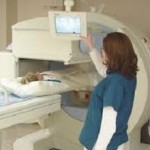Faster medical diagnosis does not always translate to Effective Health Treatment
At this day and age, people live their lives at faster pace. Information can be accessed faster through the internet, and through modern technology, all works are less laborious. It is also true in the field of medicine where people want faster diagnosis. Patients are expecting technology tp provide speedy diagnosis for deadly and infectious disease. But it is not always true that faster diagnosis can always lead to producing meaningful and significant health outcomes. It helps though in most cases.
For patients who are suffering from deadly diseases and infections, early diagnosis would help them be treated immediately. It will reduce the lag time between the patient's testing to diagnosis. Through faster diagnosis, patients can be treated immediately and avoid the probability of transmitting the disease to others.
In December 2010, the WHO or World Health Organization has announced to the public a new medical treatment that would help detect tuberculosis faster. It is very promising but very costly. Most of TB patients are coming from developing and third world countries.
The question now is whether the speed of diagnosis would equate to more health benefits. Speed may be beneficial if immediate care will be deployed to the patient. But high cost may hamper the patients to receive the best medical care. We are lucky to live in a world where all information can be gathered and processed instantly but the challenge now is how to utilize the all the resources available to transform health care. Speed does not always literally translate to significant health outcomes.
